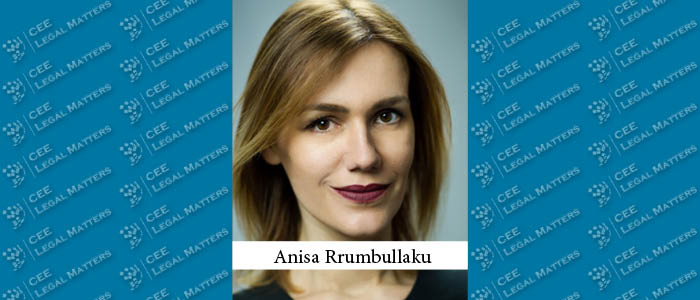In antiquity, it was commonplace for people to sacrifice a goat to the gods – sometimes to pacify them but many times to simply bring good fortune. It took millennia to overcome the post hoc ergo propter hoc thinking of “something good happened to me after I killed a goat, therefore killing a goat got me something good.” Accurate or not, certain ideas, once set in our brains, have a nasty habit of sticking around way past their prime.
Guest Editorial: Lawyering in Interesting Times – A CEE Perspective
In an era of unprecedented challenges, the legal profession in Central and Eastern Europe (CEE) is at the forefront of navigating these turbulent times. We face a vast array of challenges, including wars, the rise of nationalism, global tensions, energy crises, economic uncertainties, pandemics, climate change, and the rapid pace of digital transformation. Each of these significantly impacts both our lives and profession.
Emerging Europe’s Energy Transition
Discussing how the energy markets are evolving – diversifying, moving away from dependence on Russian gas, and becoming ever-greener – CMS Partners Horea Popescu, Blazej Zagorski, Thomas Hamerl, and Maria Orlyk take a deep dive into the dynamic shifts in the energy landscape post-2022.
2023 in the Rear-View Mirror
As 2023 comes to a close, reflections on the year reveal challenges and achievements across Romania, Bulgaria, and Ukraine. Tuca Zbarcea & Asociatii Managing Partner Gabriel Zbarcea, Schoenherr Bulgaria Local Partner Ilko Stoyanov, and Avellum Managing Partner Mykola Stetsenko share their thoughts on what kind of a year it has been.
The Corner Office: 2024 Wishes and Perils
In The Corner Office, we ask Managing Partners at law firms across Central and Eastern Europe about their backgrounds, strategies, and responsibilities. As we bid farewell to 2023, this time around we turn our attention forward: What is your one main wish for 2024 and what do you see as the biggest potential risk?
The Inside Track: In-House Legal Budgets 2024
In The Inside Track, General Counsels across CEE share the nuances of their roles, challenges, and strategies for success. Since now is the time when plans for next year are made (and budgeted for) this time we asked GCs: Is your in-house legal function’s budget increasing, decreasing, or remaining the same in 2024?
Looking In: Interview with Jonathan Marks and Richard Jones of Slaughter and May
In our Looking In series, we talk to Partners from outside CEE who are keeping an eye on the region (and often pop up in our deal ticker) to learn how they perceive CEE markets and their evolution. For this issue, we sat down with Slaughter and May Partners Jonathan Marks and Richard Jones.
Croatian M&A Market: A Slower Year
In 2023, Croatia’s M&A market faced unexpected challenges on several fronts. Lovric, Novokmet & Partners Partner Mate Lovric and Divjak, Topic, Bahtijarevic & Krka Senior Partner Damir Topic discuss the market’s slowdown in the year behind us.
Inside Insight: Interview with Tomislav Pifar of Infobip
Infobip General Counsel Tomislav Pifar first joined the company in 2011 and has been a witness to the company’s remarkable growth over the past 12 years. In reflecting on his journey, he explores the evolution of in-house legal work and international exposure, placing a particular emphasis on the transformative impact of AI on daily operations.
Managing Human Capital During a State of War
Marked by the turbulence of war, Ukraine’s legal sector has adjusted to the new circumstances but potential future talent challenges loom on the horizon.
Know Your Lawyer: Iva Miskovic of Miskovic & Miskovic
An in-depth look at Iva Miskovic of Miskovic & Miskovic covering her career path, education, and top projects as a lawyer as well as a few insights about her as a manager at work and as a person outside the office.
Know Your Lawyer: Armen Khachaturyan of Asters
An in-depth look at Armen Khachaturyan of Asters covering his career path, education, and top projects as a lawyer as well as a few insights about him as a manager at work and as a person outside the office.
Slovenia: Amendment to the Insolvency Act Brings Additional Duties to the Management and Supervisory Bodies
On November 1, 2023, the amendment to the Slovenian Insolvency Act (ZFPPIPP-H) entered into force and introduced a series of significant changes that should not be overlooked.
Austria: Success of Reorganization Plan and Out-of-Court Restructurings, Yet Failure of Preventive Restructuring Procedures
Austria implemented Directive (EU) 2019/1023 on preventive restructuring frameworks with the Restructuring Regulation, which came into force on July 17, 2021, and introduced (further) judicial proceedings for preventive restructuring. Practice, however, has shown that the reorganization plan in insolvency proceedings and out-of-court restructuring remain the methods of choice in Austria.
North Macedonia: Saving Businesses – Restructuring vs. Liquidation
As a result of the challenges that the local market has been facing over the past years brought on by the recent pandemic, wars, and other changes in the market, the majority of businesses are faced with losses and accumulating high levels of debt. Consequently, enormous pressure is imposed on businesses, including on their viability, which, in turn, pushes the need to explore methods for overcoming these obstacles.
Hungary: A General Overview of the Current Solutions for Insolvency in Hungarian Law
If someone is unable to pay their outstanding and due debts (or is just partly able to do so), that person is considered insolvent. This applies to companies and to natural persons as well. The number of companies that had to cease operations because of insolvency increased in 2023. Although the Hungarian legal environment provides several solutions to this problem, these have different effectiveness and have different consequences for both debtors and creditors. Below is a general overview of the four typical procedures for dealing with insolvency in the current Hungarian law.
Kosovo: Insolvency and Restructuring for Banks and other Financial Institutions – What is There to Know?
In Kosovo, there has been a diverse blooming of local and international companies. In the daily transactions of these companies, financial institutions continue to act as a catalyst that affects industries’ development. However, as opposed to these companies, financial institutions in Kosovo are regulated exclusively by the Law on Banks and the Law on Insurances. One important aspect of these laws is the procedures for the establishment, recovery, and liquidation of financial institutions in Kosovo, where an active role is foreseen for the Central Bank of the Republic of Kosovo (CBK) as a regulatory body in issuing guidelines and also approvals in cases of restructuring and voluntary dissolution of the financial institutions.
Albania: Insolvency and Restructuring
Albania underwent a substantial overhaul in its approach to insolvency and restructuring proceedings with the enactment of Law No. 110/2016 “On Bankruptcy” in 2017. This legislative stride replaced a prior law that had been in effect since 2002, often leading to disputes and difficulties in uniform enforcement.
































